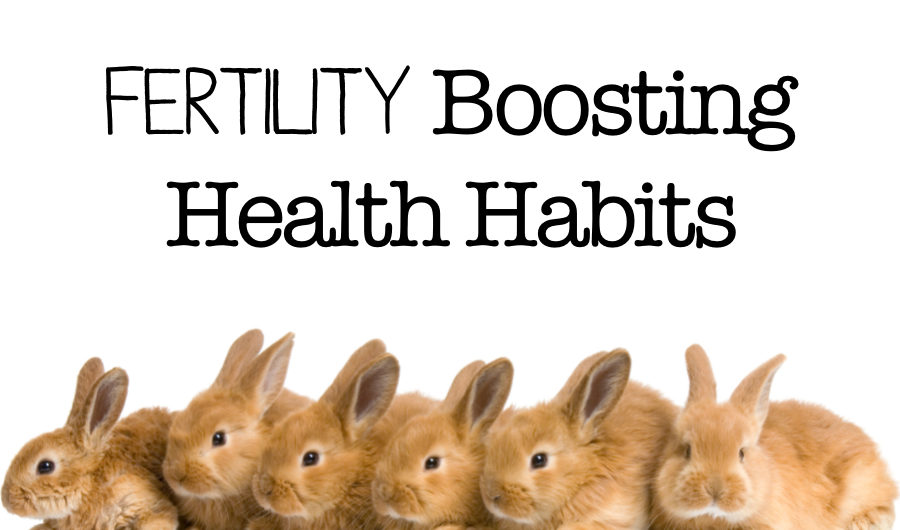Statistics tell us that one in four couples have some trouble conceiving their little bundle of joy, so why not take matters into your own hands ahead of time and give your fertility the boost it needs, naturally, says Zoe Louise Cronk
The following health habits will slot easily into your life, and can help you on your way to welcoming your new bambino into the world. It is an unfortunate fact of life that some couples will need a little help from modern medicine along the way, but before you beeline straight to the hormone injection aisle, beckon into your life the wonders of nature, in the forms of diet, supplements and holistic therapies.
Fertility Foods
As well as ensuring that your body has all the nutritional support it needs to handle carrying pregnancy to full term, having a healthy diet is also imperative for conceiving. “A healthy diet helps to balance your fertility hormones,” reveals Vicki Edgeson, Head of Nutrition at Mermaid Maternity Retreat. “I suggest that any mother planning a pregnancy should look at preparing her body at least 6 months before,” she says, highlighting the importance of “amino acids from protein and essential fatty acids from nuts and seeds, plus their oils for brain stem development.”
Vicki encourages increasing your intake of avocados and pomegranates to help regulate production of the hormones oestrogen and progesterone. Consuming plenty of whole-grains is also important thanks to their high mineral content. As Vicki explains, “This is not the time for a grain-free diet. The female body needs the energy found in the abundant minerals and vitamins of buckwheat, oats, rye, barley, millet and rices.”
And it’s not just the fairer sex that should consider a few dietary adjustments; Vicki advises men to eat foods rich in zinc (such as shellfish) and Arginine, one of the eight essential amino acids from protein. For this, she suggests good quality red meat (e.g. filet steak or lamb) and nuts or seeds as they contain essential nutrients for healthy sperm. Furthermore, Vicki adds, “Avoiding alcohol is key. There is now plenty of research that illustrates how destructive alcohol is in the regulation of hormones at this critical time.” And caffeine is a no-no too, as Vicki notes that our morning pick-me-up “tends to interfere with the vital nutrients from other healthy foods, thereby reducing energy production at a cellular level.” She continues, “I recommend sugars are cut down to a minimum as these are simply hollow calories and do not help with the energy required to develop a baby.” Hence, limiting your intake of processed foods is important.
As well as adjusting your diet, Vicki also reveals, “Mental attitude is equally important. Stress interferes with fertility in a major way so learning to relax, meditating to calm the mind, and having a positive attitude to your pending pregnancy are all key.”
Nutritional Supplements
“There is now a great deal of scientific knowledge about the use of nutritional supplements and their beneficial effects on boosting fertility,” explains Dr Marilyn Glenville, PhD. “The most important nutrients for fertility are zinc, folic acid, selenium, vitamin E, vitamin D, vitamin C, Omega 3 fatty acids for you and your partner, plus two amino acids, Arginine and Carnitine specifically for boosting male fertility.”
As the UK’s leading nutritionist specialising in women’s health, Dr Marilyn’s advice could mean the difference between conceiving, and not. She says, “According to researchers, a good quality, specially-formulated fertility multivitamin and mineral supplement may double your chances of getting pregnant.” While zinc, folic acid, Omega 3’s and vitamins E, D and C have long since been recognised for their health benefits, the little-known selenium is equally as important, particularly for its antioxidant properties and for “preventing chromosome breakage, which could make it difficult to get pregnant or increase the risk of miscarriage.” As Dr Marilyn explains, “Good levels of selenium are very important if you are over the age of 35 to help improve the quality of your eggs.”
But patience is vital too, as Dr Marilyn reveals that these supplements take time to take effect. “Three months is the how long it takes to change the quality of your eggs,” she says, “because it takes approximately that long for the follicles on your ovaries to develop before one is mature enough to release an egg at ovulation.”
“For men, it also takes at least three months for a new batch of sperm cells to mature, ready to be ejaculated. In addition, it can take from six weeks to three months to eliminate certain toxins from your system properly, and to raise the level of crucial fertility-boosting nutrients in your bloodstream.”
Acupuncture
So you’ve adjusted your diet and begun taking the appropriate supplements, but what about holistic therapies? Author, acupuncturist and fertility and pregnancy expert Emma Cannon advocates the use of acupuncture for helping couples conceive. In Emma’s opinion, acupuncture helps to “improve pelvic blood flow, calm the mind, release endorphins and regulate the menstrual cycle.” It can also aid in hormone production as it’s known to “stimulate the hypothalamus, which controls hormones.”
Revealing her method for boosting fertility, Emma explains, “I have created my own approach which is a blend of several different strands of medicine, 20 years of clinical practice and a strong foundation in western medicine. I draw on the core principles of Chinese Medicine and how it diagnoses; I find this blend perfect for the modern world and for patients who want to know the medical side is being taken care of as well as some complementary support.”
As for how much therapy is necessary, she says, “I normally recommend 3 months of treatment, but sometimes the benefits are experienced much earlier.” Here’s hoping!














